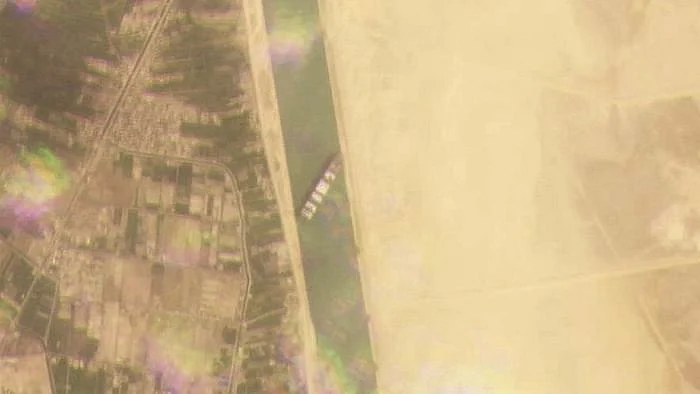A four-point plan has been chalked out in a meeting convened by the logistics division, Ministry of Commerce to deal with the situation arising from the blockage of Suez Canal, the government said on Friday, 26 March, reported PTI.
A meeting chaired by Special Secretary (Logistics) Pawan Agarwal was organised to discuss the prioritisation of cargo, freight rates, advisory to ports and re-routing of ships and was attended by representative from the Ministry of Ports, Shipping and Waterways, ADG Shipping, Container Shipping Lines Association (CSLA) and Federation of Indian Export Organisations.
Federation of Indian Export Organizations (FIEO), Marine Products Export Development Authority (MPEDA) and Agricultural and Processed Food Products Export Development Authority (APEDA) will jointly identify the perishable cargo for priority movement and work with the shipping lines in the same regard, according to the report.
The Commerce Ministry stated that the shipping lines have been requested to maintain stability in freight rates during the period of this crisis. “It was noted that the situation is temporary and is unlikely to have a long-lasting impact," it said.
“It is expected that some bunching may take place, especially at the ports of JNPT, Mundra and Hazira once the blockage is over,” the ministry noted.
Shipping lines were also reportedly advised through CSLA to explore the option of re-routing of ships via the Cape of Good Hope which would usually take around 15 additional days.
How Did It All Happen?
One of the busiest waterways in the world, the Suez Canal, was blocked on 22 March, when a 400-metre long, 224,000-tonne ship, named ‘Ever Given’ lodged sideways after a gust of wind blew it off course, as per a statement by the Suez Canal Authority (SCA).
The incident began when strong winds blew through the region and thrust sands along the banks of the canal. The waterway is less than 205 metres wide and is difficult to navigate, especially when there’s poor visibility.
‘Ever Given’, however, kept going on its charted course from China to Rotterdam. When winds reached a speed of about 46 miles an hour, dust was swept up around the ship, which led the crew to lose control and the ship deviated sideways, blocking almost the entirety of the channel.
Indian exports and imports worth $200 billion to and from North America, South America and Europe – including petroleum goods, organic chemicals, iron and steel, automobile, machinery, etc – pass through this canal.
(With inputs from PTI)
(At The Quint, we question everything. Play an active role in shaping our journalism by becoming a member today.)
